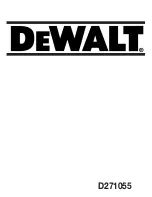
172 Product Manual - Disc Drive SCSI-2/SCSI-3 Interface (Vol. 2; Ver. 2), Rev. E
_____________________________________________________________________________________
5.2.2.2
Read Extended Command (28h)
Table 5.2.2-3. Read Extended Command
Bit
7
6
5
4
3
2
1
0
Byte(s)
0
0
0
1
0
1
0
0
0
1
Logical Unit No.[1]
DPO
FUA
RelAdr
0
0
0 [2]
[3]
0
0
[4]
2
Logical Block Address (MSB)
[5]
3
Logical Block Address
[5]
4
Logical Block Address
[5]
5
Logical Block Address (LSB)
[5]
6
0
0
0
0
0
0
0
0
7
Transfer Length (MSB)
[6]
8
Transfer Length (LSB)
[6]
9
0
0
0
0
0
0 Flag Link [7]
The Read Extended Command requests that the target transfer data to the initiator. This command is imple-
mented with the drive specific parameters shown in Table 5.2.2-3.
This command operates the same as the Read command (see Section 5.2.1.4) except that in the CDB for
this command a four byte Logical Block Address and a two byte Transfer Length may be specified.
The data value most recently written in the addressed logical block is returned to the Host.
This command shall be terminated with a Reservation Conflict status if any reservation access conflict (see
Section 5.2.1.8) exists, and no data shall be read.
Notes.
[1] LUN must be zero.
[2] A disable page out (DPO) bit of one indicates that the disc drive shall assign the logical blocks accessed
by this command the lowest priority for being fetched into or retained by the cache.
The DPO bit is used to control replacement of logical blocks in the cache memory when the host has
information on the future usage of the logical blocks. If the DPO bit is set to one, the host knows the
logical blocks accessed by the command are not likely to be accessed again in the near future and
should not be put in the cache memory nor retained by the cache memory. If the DPO bit is zero, the host
expects that logical blocks accessed by this command are likely to be accessed again in the near future.
[3] A force unit access (FUA) bit of one indicates that the target shall access the media in performing the
command prior to returning GOOD status. Read commands shall access the specified logical blocks
from the media (i.e., the data is not directly retrieved from the cache). In the case where the cache
contains a more recent version of a logical block than the media, the logical block shall first be written to
the media.
















































